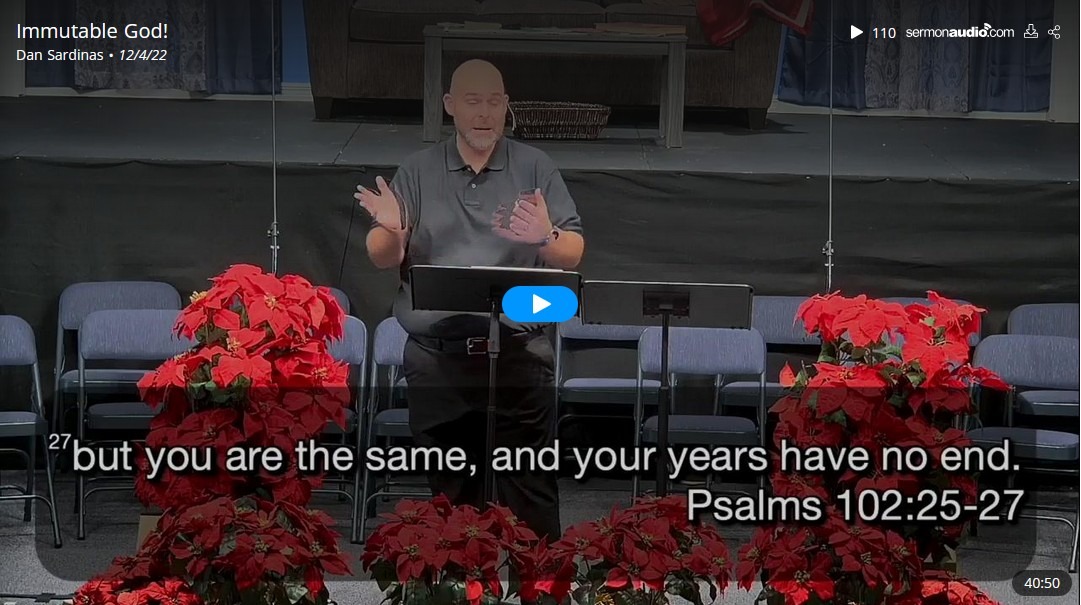Auto-generated transcript:
Open your Bibles this morning to Malachi chapter 3. As you turn there, mark your calendars for our annual traditional candlelight Christmas Eve service at 6 p.m. We’ll sing Christmas carols, read the Christmas passage from the New Testament, pray, and worship Christ together. It’s a brief, beautiful service lasting about 45 minutes. Please join us!
Let’s pray. God, thank you for your Word. Help us now as we continue in Malachi. Enable us to see deep doctrinal truths foundational for our lives. Reveal your holy character and nature clearly through your Word. In your name we pray, amen.
Last week, we saw God telling Israel His patience was reaching its expiration. Malachi described it as the people wearying the Lord with their words. Even God’s kindness in allowing repentance doesn’t last forever. Israel, despite returning from Babylonian exile, had again allowed idolatry, unjust treatment of others, and disrespectful marriages to creep back into their lives. Even the priests failed in their responsibilities, dishonoring God’s name.
Malachi describes their state as extreme apathy, even redefining truth, calling evil good and accusing God of injustice. They questioned God’s presence since the temple was rebuilt but lacked the former glory and expected blessings. Yet, they overlooked that God had rejected their compromised worship.
But why had God remained patient despite their rebellion? His patience isn’t rooted in human merit, but in His own immutable character. In Malachi 3:6, the Lord declares, “For I, the Lord, do not change; therefore, O children of Jacob, you are not consumed.” God’s faithfulness to Israel—and to us—is founded in His immutable nature. His character and promises never change, ensuring our preservation despite our failures.
Israel deserved judgment, yet God’s promises to Abraham and David required His continued faithfulness. If God ended Israel, the Messianic promise would fail. There’d be no Christmas, no Messiah, and no hope for redemption.
Our eternal hope is equally secure because God remains faithful even when we falter. 2 Timothy 2:13 reminds us, “Even if we are faithless, He remains faithful, for He cannot deny Himself.” God’s immutability—His inability to change—is central to our faith and salvation.
Unlike humans, God doesn’t change in His essence, attributes, or will. He is eternal, outside of time, self-existent, and self-sufficient. God doesn’t learn or evolve; He possesses all knowledge, power, and presence unchangingly. His holiness, mercy, faithfulness, grace, and love remain constant. Even His will and Word never waver.
Jesus Christ, fully God and fully man, perfectly reflects this immutability. Hebrews 13:8 confirms, “Jesus Christ is the same yesterday, today, and forever.” He upholds the universe by His unchanging power and love, offering unshakeable hope and security.
As we prepare for the Lord’s Table, remember Christ’s immutable sacrifice. He came specifically to die, defeating sin and Satan, securing eternal redemption. Let us repent, cling to Christ, and rejoice in His unwavering love and faithfulness.
Father, thank you for your immutable nature and faithful promises. As we partake in communion, renew our faith, strengthen us by your grace, and remind us of Christ’s eternal sacrifice. In Jesus’ name, amen.

